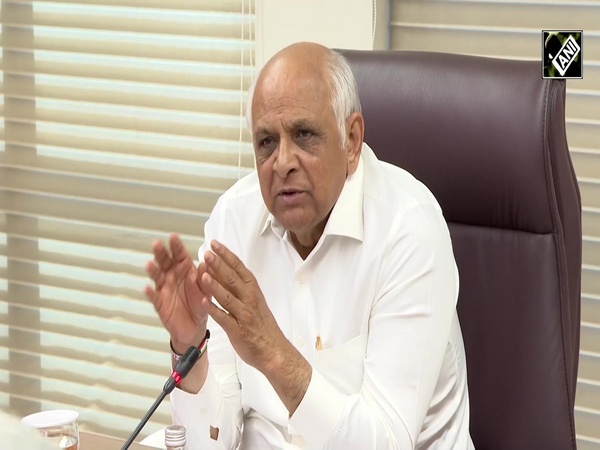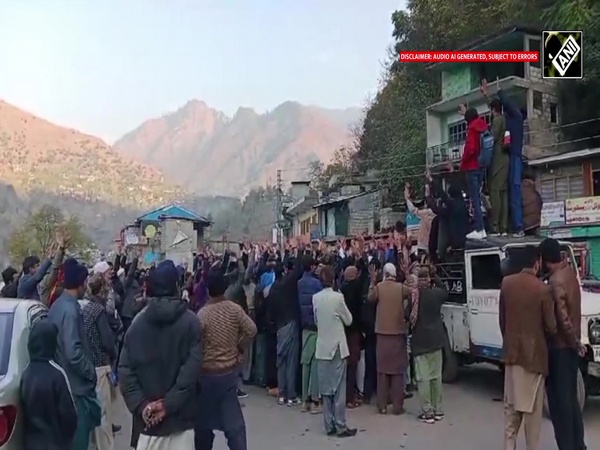US takes steps to ensure accountability for forced labour in China's Xinjiang
Jun 25, 2021

Washington [US], June 25 : The United States announced a series of actions aimed against forced labour in China's Xinjiang, which is said to have detained more than a million members of ethnic minorities, including Uyghur Muslims.
In a fact sheet, the White House said that the Biden-Harris administration is taking additional steps to hold those who engage in forced labour accountable and ensure that the US continues to remove goods made with forced labour from the supply chains through actions by the Department of Homeland Security's US Customs and Border Protection (CBP), the Department of Commerce, and the Department of Labor.
"These actions demonstrate our commitment to imposing additional costs on the People's Republic of China (PRC) for engaging in cruel and inhumane forced labour practices and ensuring that Beijing plays by the rules of fair trade as part of the rules-based international order. The United States believes that state-sponsored forced labour in Xinjiang is both an affront to human dignity and an example of the PRC's unfair economic practices," the White House said.
The US CBP has issued a Withhold Release Order (WRO) on silica-based products made by Hoshine Silicon Industry Co, Ltd, a company located in Xinjiang, and its subsidiaries. This WRO is based on information reasonably indicating that Hoshine used forced labour to manufacture silica-based products.
Moreover, the CBP's forced labour investigations have produced six WROs in Fiscal Year 2021, including one on cotton and tomato products from the Xinjiang region, another on cotton products originating from the Xinjiang Production and Construction Corps (XPCC), and one on the Dalian Ocean Fishing Co, Ltd.
Currently, 35 of 49 active WROs are on goods from the PRC, and 11 WROs are on goods made by forced labour from Xinjiang.
Additionally, the Department of Commerce's Bureau of Industry and Security (BIS) has blacklisted five PRC entities. The Entity List includes - Hoshine Silicon Industry (Shanshan); Xinjiang Daqo New Energy; Xinjiang East Hope Nonferrous Metals; Xinjiang GCL New Energy Material Technology, and XPCC-- for participating in the practice of, accepting, or utilizing forced labour in Xinjiang and contributing to human rights abuses against Uyghurs and other minority groups in Xinjiang.
This action will restrict the export, re-export, or in-country transfer of commodities, software, and technology subject to the Export Administration Regulations.
Furthermore, the Department of Labor has published a Federal Register Notice updating its "List of Goods Produced by Child Labor or Forced Labor," to include polysilicon produced with forced labour in China. This update is the first time a good has been added outside of that two-year cycle, highlighting its strong response to the severity of the ongoing human rights abuses against Uyghurs and other minority groups in Xinjiang, according to the White House.
"The PRC's use of forced labour in Xinjiang is an integral part of its systematic abuses against the Uyghur population and other ethnic and religious minority groups, and addressing these abuses will remain a high priority for the Biden-Harris administration. The systematic abuses go beyond forced labour to include sexual violence and large-scale forced detentions, and the PRC continues to commit genocide and crimes against humanity in Xinjiang," said the White House.
Meanwhile, Ned Price, Department of State spokesperson, said: "We will continue to work with our partners and allies to promote accountability for the PRC government's use of forced labour as well as its genocide and crimes against humanity against Uyghurs and members of other ethnic and religious minority groups in Xinjiang."
This latest action comes amid rising tension between the two countries over issues including human rights violations, trade and China's military aggression.
Back in April, the US had restricted trade with top Chinese supercomputing centres, as these capabilities can be used for the development of modern weapons and national security systems.




















